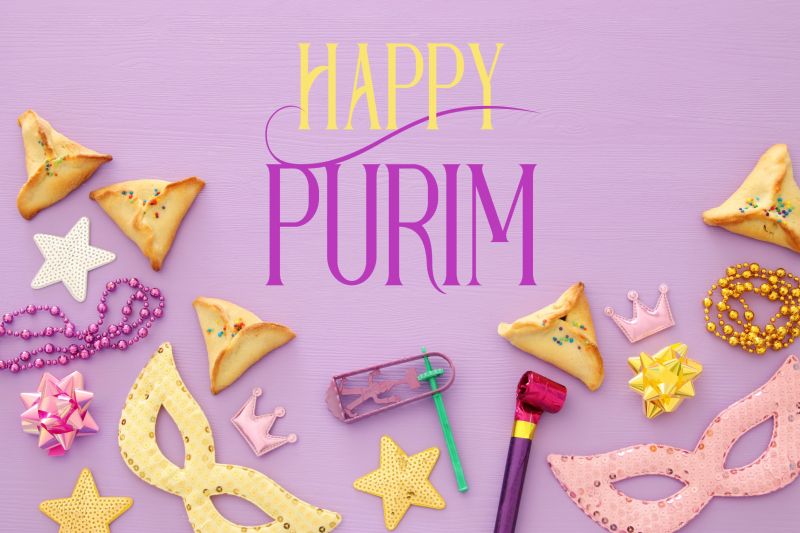Purim: Celebrating the Salvation of the Jewish People
iSavta | 06.03.2023

Purim is a Jewish holiday that commemorates the salvation of the Jewish people in ancient Persia. The holiday is celebrated on the 14th of Adar, which falls in late February or early March on the Gregorian calendar. Purim is a joyous holiday marked by feasting, gift-giving, and other traditions.
The story of Purim is recounted in the Book of Esther, which tells the story of how Esther, a Jewish woman, became the queen of Persia and used her position to save her people from a plot to destroy them. The villain of the story is Haman, the king's advisor, who convinces the king to issue a decree allowing for the extermination of all Jews in the kingdom. Esther, with the help of her cousin Mordecai, reveals Haman's treachery to the king and foils his plan. The holiday gets its name from the Hebrew word "pur" which means "lot," as Haman used lots to determine the date of the extermination.
One of the most popular traditions associated with Purim is the reading of the Book of Esther in synagogues. The reading is done twice, once on the evening of Purim and once the following morning. Whenever the name of Haman is mentioned during the reading, it is customary for people to make noise by shaking noisemakers called "groggers" or stamping their feet to drown out his name.
Another important aspect of Purim is the giving of gifts to friends and family members. It is customary to give gifts of food or drink, known as "mishloach manot," to at least two people on Purim. The gifts often include traditional foods such as hamantaschen, triangular cookies filled with fruit or other sweet fillings, and wine or other alcoholic beverages.
Costumes are also a big part of Purim celebrations, with many people dressing up as characters from the Book of Esther or other popular figures. This tradition likely stems from the fact that Esther disguised her Jewish identity to become queen and ultimately save her people.
In addition to these traditions, Purim is also a time for feasting and merriment. It is customary to hold a festive meal, known as a "seudah," on the afternoon of Purim. The meal typically includes traditional foods such as challah bread, fish, and meat dishes, as well as wine and other alcoholic beverages.
The origins of Purim can be traced back to the Persian Empire in the 5th century BCE. The story of Esther and Mordecai is believed to be based on historical events that took place during the reign of King Xerxes I. The holiday was first mentioned in the Mishnah, a compilation of Jewish oral law and tradition, and has been celebrated by Jews around the world ever since.
In conclusion, Purim is a joyous holiday that celebrates the salvation of the Jewish people from a plot to destroy them. The holiday is marked by traditions such as the reading of the Book of Esther, the giving of gifts, costumes, and festive meals. Through these customs and practices, Jews around the world come together to remember the bravery of Esther and the resilience of the Jewish people.
Read more about All About Israel

All About Israel











